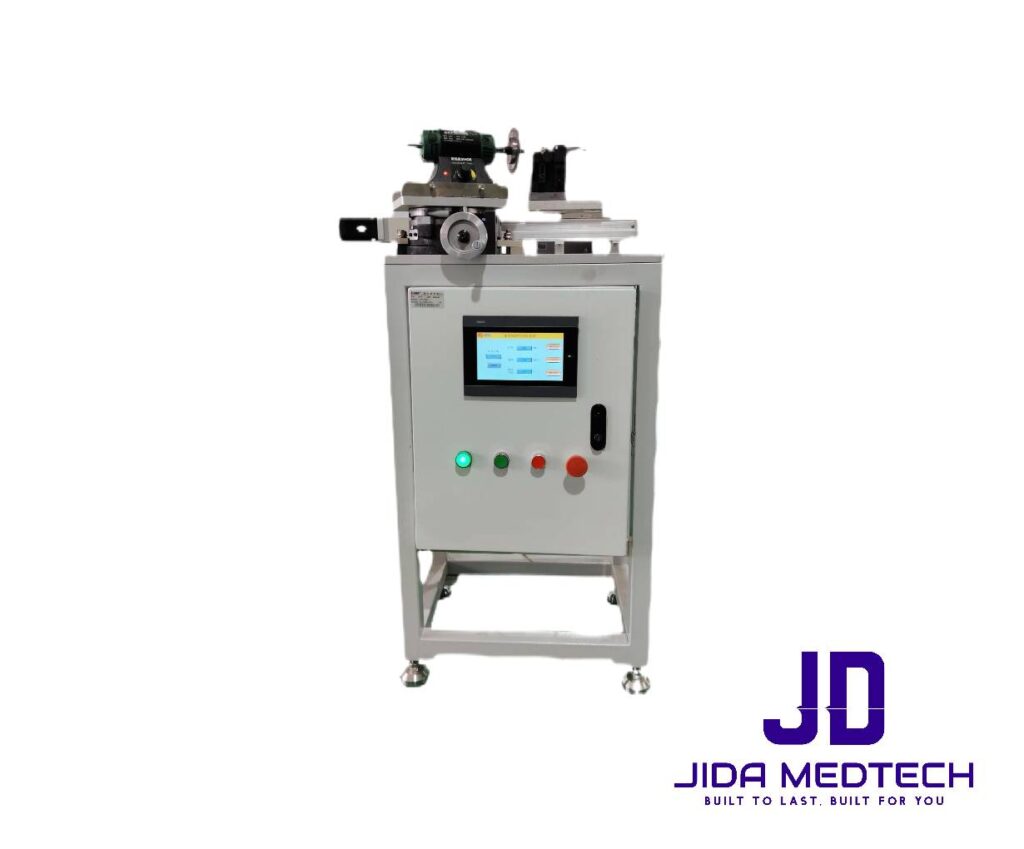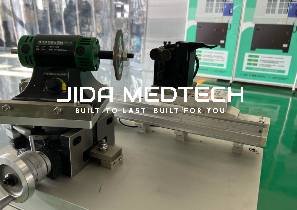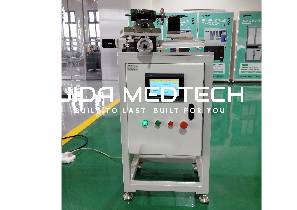
Model: JDM-MJJ002
Speed: 250 pcs per hour
Power: 1.5kw
Dimension:
Introduction: After the drills production, the tip need to be polish or grind for more smooth.
Why you need this machine?
Grinding the tips of endodontic NiTi (Nickel-Titanium) files after all the production processes serves several important purposes in enhancing their performance during dental procedures:
Sharpness and Cutting Efficiency:
- Grinding the tips helps achieve and maintain a sharp cutting edge. A sharp tip is crucial for efficient and precise cutting during root canal procedures. It allows the file to navigate the intricate root canal system more effectively.
Improved Accessibility:
- The grinding process can be used to shape the tips, creating specific configurations that enhance the file’s ability to access and negotiate curved or narrow canal pathways. This is particularly important for cases with complex root canal anatomy.
Reduction of Engagement Forces:
- Well-ground tips reduce the engagement forces between the file and dentin. Lower engagement forces help minimize the risk of file separation, a critical concern during root canal procedures.
Minimization of Stress Concentrations:
- By refining the shape and geometry of the tips through grinding, stress concentrations can be minimized. This contributes to the overall durability and resistance to cyclic fatigue of the endodontic NiTi file.
Consistent Performance:
- Grinding ensures uniformity in the tip design across all manufactured files, leading to consistent performance characteristics. This consistency is essential for practitioners who rely on predictability and precision during dental procedures.
Reduction of Friction:
- Properly ground tips can contribute to the reduction of friction between the file and the canal walls. Lower friction enhances the overall efficiency of the file and reduces the risk of procedural errors.
Patient Comfort:
- A well-ground tip contributes to a smoother and more controlled filing process, potentially improving patient comfort during root canal treatments.
Quality Assurance:
- Grinding the tips is an essential step in the quality assurance process. It allows manufacturers to inspect and refine the critical tip area, ensuring that each endodontic NiTi file meets the required specifications and standards.
Adherence to Clinical Protocols:
- Well-ground tips enable practitioners to adhere to established clinical protocols and achieve the desired treatment outcomes. Consistent tip geometry contributes to the success of root canal treatments.
Reduced Risk of Procedural Errors:
- Grinding helps to eliminate irregularities and imperfections in the tip, reducing the likelihood of procedural errors such as ledging, transportation, or perforation during root canal procedures.
It’s important to note that the grinding process must be conducted with precision and adherence to quality control standards to ensure that the tips are uniform and meet the required specifications. Overall, the grinding of endodontic NiTi file tips plays a crucial role in optimizing their performance, enhancing practitioner confidence, and contributing to the success of root canal treatments.
Follow us on Facebook: https://www.facebook.com/jidamedtech



